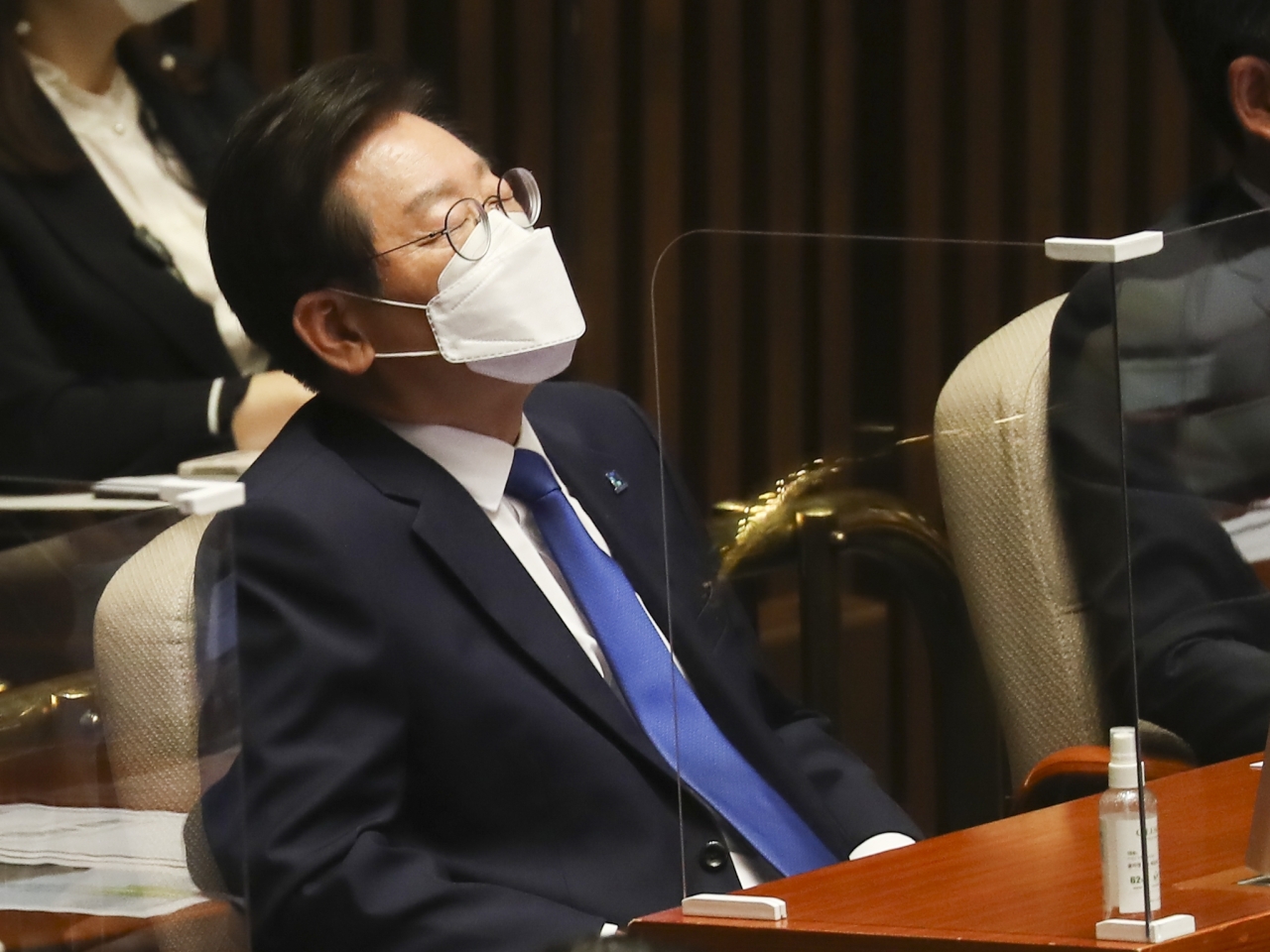South Korea’s ruling and opposition parties kicked off the first National Assembly regular session under the Yoon Suk-yeol administration on Thursday, feuding over the North Korea human rights agenda and criminal justice reforms.
The ruling People Power Party will likely have a diminished influence over legislation and other political decisions as the majority of National Assembly is controlled by the main opposition Democratic Party of Korea.
But important issues and policy discussions were overshadowed by growing legal woes facing the parties on the first day of the new National Assembly, with prosecutors asking to subpoena the Democratic Party’s freshly elected leader and onetime presidential candidate Rep. Lee Jae-myung.
Deepening criminal investigationsProsecutors on this day said they would subpoena the Democratic Party leader over possible false claims he made during last year’s parliamentary questioning, where he was grilled about criminal suspicions surrounding real estate development projects that he pursued while he was mayor of Seongnam, Gyeonggi Province.
The claims came as Lee was responding to a question about the switch in plan to build a commercial apartment complex on the land which was initially approved for building state-owned residential properties. Lee replied that he was forced to make the change due to “pressure” from the Ministry of Land, Infrastructure and Transport. More specifically, he said that he had been “pressured with legal threats.”
Police referred its investigations into Lee to the prosecutors on Monday after finding no evidence to suggest that the Land Ministry had “threatened” him into changing the land use plan.
The prosecutors’ request to subpoena Lee became known through a photograph taken by a reporter that showed Lee’s smartphone screen displaying a text message from his aide that read, “This is war. A subpoena request has just arrived.”
Lee faces several active investigations, the most high-profile of which concerns the real estate projects he undertook as Seongnam mayor. Large amounts of the profits from the city project went to private business people, who are suspected of having close ties to Lee.
Ahead of Lee’s election as leader, the Democratic Party revised the intraparty constitution to remove the article suspending party members following indictment by prosecutors to make sure that he can continue to hold his post in the event he ends up in criminal jeopardy.
The Democratic Party has decried the police and prosecutors as being “politically motivated,” and called for reform of the criminal justice procedures.
The Democratic Party leadership started this week by demanding a special counsel investigation of first lady Kim Keon-hee.
Kim is being investigated for allegedly faking her credentials to land faculty positions at universities and for her possible role in a Deutsch Motors stock price manipulation scandal. Over the last few months, other conflicts of interest and ethical questions were raised after her personal acquaintances were found to have been given jobs at the presidential office.
Ruling party civil war taken to courtThe People Power Party’s recent attempt at launching an emergency leadership has run into a hurdle after the court granted an injunction filed by ex-leader Lee Jun-seok. The court, siding with Lee Jun-seok, said the situation facing the ruling party was “not an emergency” and the formation of an emergency leadership was therefore invalid.
In July, the ruling party’s internal ethics committee made an unprecedented decision of suspending Lee Jun-seok, then the party leader, for trying to cover up allegations that he accepted sexual favors on several occasions from a business person.
The ethics committee suspension blocked Lee Jun-seok from serving as the leader for six months until January next year, but the ruling party decided to move on with a new leadership before he could come back.
While some in the party are considering pushing ahead with the leadership without Lee Jun-seok, others including Rep. Ahn Cheol-soo have slammed the plan as “not respecting the opinion of the court.”
Yoon’s North Korea human rights push in deadlockThe North Korean Human Rights Act enacted in 2016 stipulates a statutory foundation investigating the status of human rights in North Korea and developing policies concerning promotion of human rights there and humanitarian aid efforts.
Six years since the Act’s enactment, no such foundation has been created amid steep opposition from the Democratic Party.
Last week, the People Power Party called for a swift appointment of the chair of the North Korea human rights foundation and an inspector general overseeing the audit of the presidential office, posts which have remained unfilled over the last five years of the previous Moon Jae-in administration. The Democratic Party has only agreed to the latter.
The foundation’s chair is picked among candidates recommended by the ruling and opposition parties and the minister of unification. The People Power Party already submitted its recommendations in February last year. The Democratic Party has failed to come up with its recommendations, with the Unification Ministry making another request to do so in July.
By Kim Arin (
arin@heraldcorp.com)








